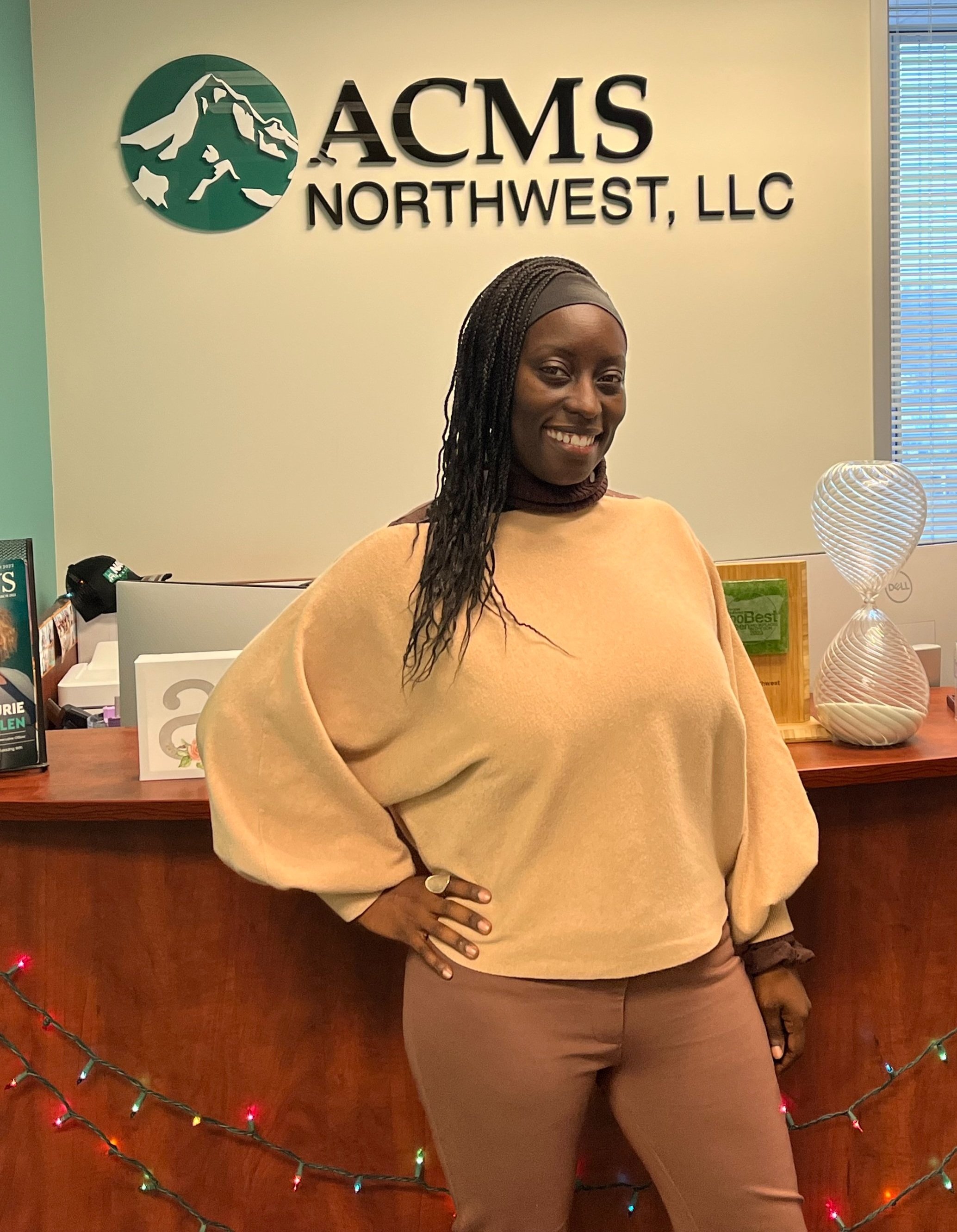How Take Your Child to Work Day Inspired ACMS Northwest President
As one of five children from Beaverton, Oregon, Monique Allen did not dream of entering the construction industry, let alone becoming the president of a construction company. One reason the notion wasn’t entertained was because she didn’t see other African American women in the construction industry. However, her vision for herself changed when her father, who worked in the construction field, invited Monique to tag along on a “Take Your Child to Work” day. That experience lit a fire within Monique, and fueled by her innate curiosity, she began appreciating the importance of the construction field and the many specialized disciplines it requires.
Monique, who is the President of ACMS Northwest, LLC, a construction management and civil engineering firm working on the I-205 Abernethy Bridge Project, began her career working at the Columbia Boulevard wastewater treatment facility. Throughout her career elsewhere, she observed that her advancement opportunities were limited. Monique heard feedback that she’d be more likely to advance if she changed her hairstyle, or ceased using her actual first name because it was difficult to pronounce (Monique is her middle name). These bits of “advice” served to convey one overarching message--advancement would come more easily if she was of a different race and gender.
Frustrated, Monique decided to forge her own path and, in the process, provide opportunities for people who looked like her. Monique knew people would assume doors would open easily for her because of her father, but the reality was very different. She often found that people underestimated her, but undaunted, Monique familiarized herself with every position within her father’s company. Doing this not only allowed her to have a deep appreciation for what her team members did, but it also meant that ACMS’ future operations would continue even if there were unexpected absences because Monique knew how to jump in and keep things moving.
Despite holding a leadership role, Monique contends with some of the same perceptions that were present earlier in her career, including being underestimated and tokenism in the form of some business partners extolling their connection to ACMS to build their Disadvantaged Business Enterprise (DBE) credentials, but in reality, the partnership doesn’t yield any meaningful work. Monique reports that her experience on the I-205 Abernethy Bridge Project, along with other projects, has been very different. On the Abernethy Bridge Project, she’s found project leaders who listen and are genuinely interested in providing ACMS with opportunities to expand their range of skills. On this project, she’s found that more experienced workers are enthusiastic about mentoring junior staff, which is critical to building a workforce capable of supporting future regional construction projects.
Looking toward the future, Monique is seeking opportunities that expand ACMS’ skills and bolster its reputation. While Monique would like ACMS’ portfolio to grow, most of its geographic focus will remain local. With all three managing members being female and two of the three being women of color, they do not want the company to become so large that they cannot have genuine connections to their team, which consists of 65% women or people of color. Another benefit of keeping ACMS’ focus local is that it’s easier for Monique and her team to engage with local students, particularly girls and students of color participating in Science, Engineering, Technology, and Mathematics (STEM) programs. Monique hopes ACMS’ involvement with these students encourages them to think about their futures expansively. Due to Monique’s commitment to her staff, her company, the construction industry, and the community, she has been recognized by the Portland Business Journal and was recently named Woman of the Year by the Portland chapter of WTS, which is a professional association advancing women in the transportation industry.
The I-205 Abernethy Bridge Project is proud to have partners like Monique and ACMS working on ODOT’s largest construction project in over 45 years. Thank you, Monique and ACMS, for your expertise and contributions to a project that literally and symbolically provides connections, reduces barriers, and, when completed, will hold the stories of us in concrete and steel—all of us.

